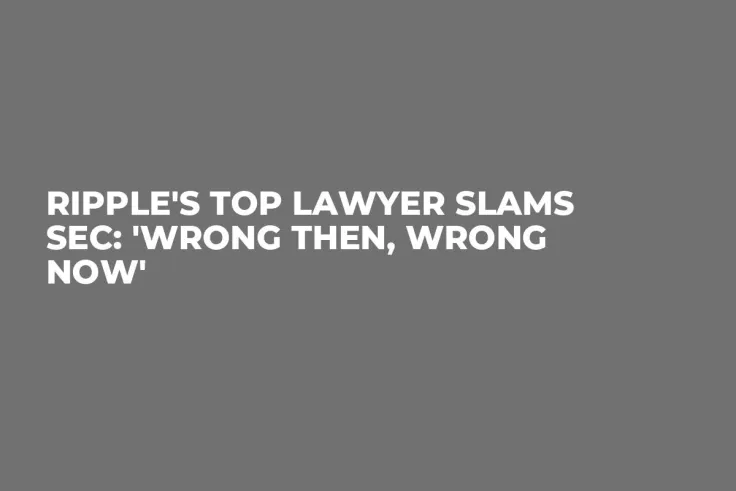Ripple's top legal representative Stuart Alderoty has criticized the U.S. Securities and Exchange Commission (SEC), drawing a historical parallel to highlight the SEC's ongoing legal missteps.
In a recent tweet, Alderoty referenced the SEC's 1946 Supreme Court case known as the "Howey Test," arguing that the SEC was incorrect in its interpretation then, and continues to be so in its current case against Ripple.
Alderoty's tweet underscores the continuing tension between Ripple and the SEC, a dispute that has significant implications for the digital assets industry.
The Howey Test, referenced by Alderoty, established a standard for what constitutes an "investment contract" or security. In 1946, the SEC argued that an investment in a "common enterprise" was unnecessary, provided there was a "community of interest." However, the Supreme Court disagreed, ruling that an investment contract — and thus a security — involves an investment in a common enterprise with expectations of profits predominantly from the efforts of others.
Alderoty argues that the SEC's interpretation was wrong then and continues to be incorrect now, essentially questioning the SEC's understanding of what forms a "common enterprise."
The SEC's ongoing case against Ripple Labs, the company behind the XRP cryptocurrency, alleges that the firm conducted an unregistered securities offering worth $1.3 billion by selling XRP. The SEC maintains that XRP should be classified as a security, not a currency, and as such, its sale required appropriate securities registration. Ripple, however, disputes this categorization, stating that XRP is a currency and should be regulated as such, not as a security. Alderoty's comments are part of Ripple's broader effort to push back against the SEC's allegations.
The outcome of this case could set a significant precedent for how digital assets are regulated in the United States.



 Dan Burgin
Dan Burgin Vladislav Sopov
Vladislav Sopov